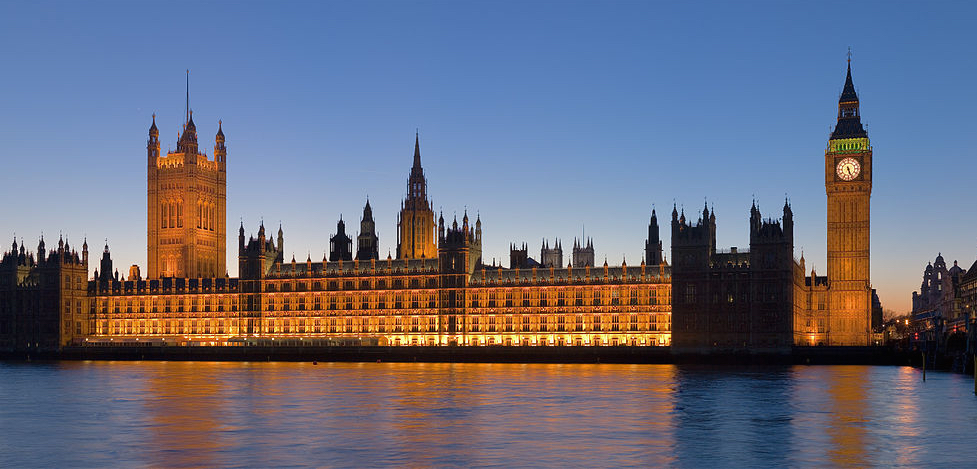Less than 48 hours are left before Britons head to the polls. What for? To choose whether the UK will leave or remain in the European Union, to which it’s been integral for the past four decades.
Partisan support for Brexit has been thought to come primarily from right-wing populist actors such as the UK Independence Party (UKIP), along with a rebellious wing of Cameron’s Tories. To them, the EU is a costly and bureaucratic institution, run by unelected, out-of-touch elites in Brussels. Too long has its unwieldy power stifled business and trade, left immigration unchecked, and curtailed British sovereignty.
But more than just right-wingers fill the ranks of “camp leave.” Though they’ve been the most vocal in wanting out, there are leftist “Brexiters” too.
Is this counter-intuitive?
It could be, given Labour’s traditional internationalist bent should make staying in the EU the more natural choice. Indeed, Labour leaders have backed “camp remain” in near unison, unlike the internally split Conservatives.
Yet, on the ground, a YouGov poll this March showed a quarter of Labour voters were, in fact, pro-Brexit. Another YouGov poll for the Times in May found 45% of Labour voters thought the party was actually in favour of leaving or divided between the two camps. Labour MP, Gisela Stuart, also happens to be Chair of Vote Leave, the foremost pro-Brexit coalition.
Certainly, left-wing Brexiters remain a minority, so let’s not overstate their political clout. But with “camp remain” having only a marginal lead over “camp leave” in recent forecasts, tomorrow’s referendum could swing either way.
What, then, is the case to leave on the Left? It’s not as counter-intuitive as you’d think.
Labour itself had long been the party of Eurosceptism, from the time of Clement Attlee to Michael Foot, until Thatcher’s Tories arrived on the scene. Even current leader Jeremy Corbyn was at one point a Eurosceptic, having voted for Britain to leave the EU’s predecessor, the European Economic Community (EEC), in the 1975 referendum. Rumour has it Corbyn only took a pro-European stance this time around for party unity.
In a way, the leading voices for Brexit on today’s Left echo those on the populist Right. Both have a stake in the same demographic: the working-class Britons that globalization left behind. Though Labour’s trade unionist roots made it the traditional bastion of working-class voters, Brexiters within the party have warned neglect of the European issue will only drive them toward the Eurosceptic UKIP.
Labour Leave, the party’s pro-Brexit lobby, is trying to stop this.
In this light, Labour Leave’s platform takes aim at the EU’s harm to the British working class. Like Brexit campaigners on the populist Right, it argues the EU is fundamentally undemocratic and unrepresentative. The European Parliament remains little more than a rubber stamp while unelected commissioners and Angela Merkel call the shots. Those who benefit from the EU are not British workers, but multinational banks, big business, and tax-dodging elites.
According to Labour Leave, the consequences of Brussels’ unchecked rule for the everyday Briton have been endless. Take, for instance, the EU’s free movement of workers law that’s allowed UK companies to bring in cheap labour at the expense of Britain’s own. The rights of British workers themselves continue to erode: European Court decisions on cases such as Viking Line and Laval put employers’ freedom of movement and establishment over employees’ right to strike. Even if the EU were once meant to guarantee labour rights, it’s done little to curb the ever-growing number of British workers on exploitative “zero hours” contracts, already at more than 800,000.
Add to all this the recently signed Transatlantic Trade and Investment Partnership (TTIP), which will make UK public services fair game for privatization under US companies, send jobs overseas, and allow corporations to sue the British government over lost profits. To Labour Brexiters, the benefits of EU membership for the everyday Briton are scarce.
What Labour Brexiters have tried here is to appeal to the material concerns of the British “precariat.” Coined by SOAS development economist Guy Standing, this new class of the 21st century is defined by its perpetual uncertainty and vulnerability – that is, its precarity – amid economic downturn, chronic job insecurity, and the takeover of flexible, temp labour. European integration has taken much of the blame for the precariat’s frustrations, fuelling the success of Eurosceptic populist parties such as UKIP.
While mainstream Labour remains overwhelmingly against leaving, the party’s pro-Brexit faction sees this stance as ignoring British workers’ real concerns about the EU’s impact on the economy and immigration. Yet it’s campaigned without the ultra-nationalist rhetoric of many of its counterparts on the Right, perhaps to dispel the stereotype of Brexiters as xenophobic and delusional (see Boris Johnson’s comparison last month of the EU to Hitler).
And there’s another, closely related strand of pro-Brexit reasoning that’s surfaced in a number of left-leaning and socialist outlets over the past year. Rather than target the immediate material concerns of the precariat, it appeals to Brexit on principle, as an inherently left-wing cause.
To put the argument simply, should the Left be committed to progress and social equality, a vote to leave would be in order.
That is, not only does the EU hurt the interests of everyday Britons, but it stands for what’s antithetical to the Left: neoliberalism, for one. In the summer 2015 edition of the British Socialist Review, Joseph Choonara gave a defense of Brexit on this basis. European integration, he wrote, served the post-war need for Europe’s weakened capitalist classes to go beyond the confines of individual nation-states for collective political and economic strength. The EU today remains neoliberal at its core, dependent on integration for the free reign of market forces and highly mobile, exploitable labour.
Yet Choonara added, echoing many other leftist and socialist critics, the neoliberal EU has gone into crisis mode in recent years (the root of many of the precariat’s material hardships, as previously mentioned). The “troika” – that is, the Commission, Central Bank, and IMF – have only continued, for instance, to subvert Greece’s Syriza government and impose harsh austerity measures, despite popular protest and the degradation of living standards.
So, left-wing Brexiters ask: why should Britain stay part of a body that defies their principles of equality and solidarity?
A final piece of the “principled” case for Brexit then challenges what it means for Labour and the Left to be internationalist. Though mainstream Labour has invoked the party’s internationalist tradition as reason to remain, why should free movement and trade be limited to Europe’s borders? The EU, in this view, reinforces the divide between rich Northern and poor Southern countries.
To illustrate such inequity, left-wing Brexiters have pointed to the example of immigration. A Romanian or Spaniard would have a much easier time getting into the UK than a Syrian or Libyan. The latter would have to confront “Fortress Europe” and the risk of detention, deportation, or death while en route, even though their aims, such as finding a better life, could be the same as their European counterparts.
For the British Left to pursue equality, justice, and prosperity on the global scale, Brexiters insist it must look beyond the EU. As Labour MP and Labour Leave co-chair Kate Hoey wrote in the Independent last October, “We can stop being Little Europeans and become Internationalists again.”
And there it is: the case for Brexit on the Left. On the one hand, it’s pragmatic, an appeal to the economic concerns of everyday Britons to prevent Labour from losing votes to the populist Right. On the other, it’s principled, showing how a split from the EU could align, in fact, with the British Left’s core tenets. Regardless of whether you agree with the arguments here, they add another dimension to the Brexit debate that’s gone relatively unheard.
But will the leftist case for Brexit hold much sway in tomorrow’s referendum?
The race is almost too close to tell. A YouGov poll for June 15-16, published in ITV’s Good Morning Britain, showed a two-point lead for “camp leave” while one for June 16-17 in the Sunday Times showed “camp remain” ahead by a single point.
YouGov suggested the slight shift in favour of “camp remain” could have been due to growing concern among voters about the economic ramifications of a potential Brexit. What will be crucial on voting day, however, is turnout: the young, who are more likely to be pro-EU, are less likely to show up to the polls than their older counterparts, who’ve tended to be pro-Brexit. An ORB poll for the Independent earlier this month found 78 percent of pro-Brexit respondents planned to vote for sure, in contrast to only 66 percent of those who were pro-EU. And because, given the Tory divide, a united Labour front could be vital for tipping the scales toward “remain,” a mix of lacklustre turnout and a split among its voters could lead to the contrary.
Either way, one thing is certain: a vote for Brexit today would be of little avail to the Left. Despite the principled and pragmatic critiques of the EU as neoliberal or harmful to working-class Britons, the UK’s leaving would only give Conservatives the freedom to do the opposite of what left-wing Brexiters stand for.
The Guardian’s Paul Mason drove this point home last May, in his own left-wing defense of an eventual Brexit. He wrote, ”If Britain votes Brexit, then Johnson and Gove stand ready to seize control of the Tory party and turn Britain into a neoliberal fantasy island.”
Photo: Palace of Westminster, London (2007), by Diliff via Wikipedia. Licensed under CC BY-SA 2.5.
Disclaimer: Any views or opinions expressed in articles are solely those of the authors and do not necessarily represent the views of the NATO Association of Canada.




